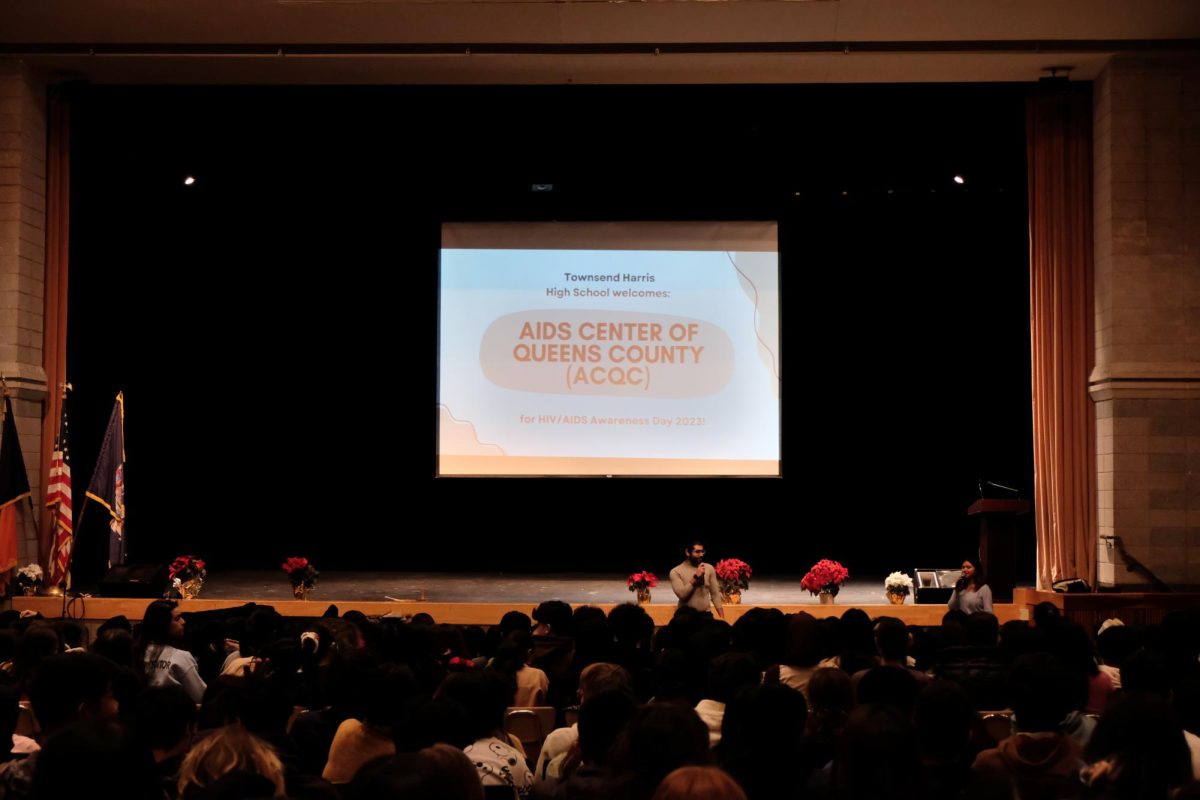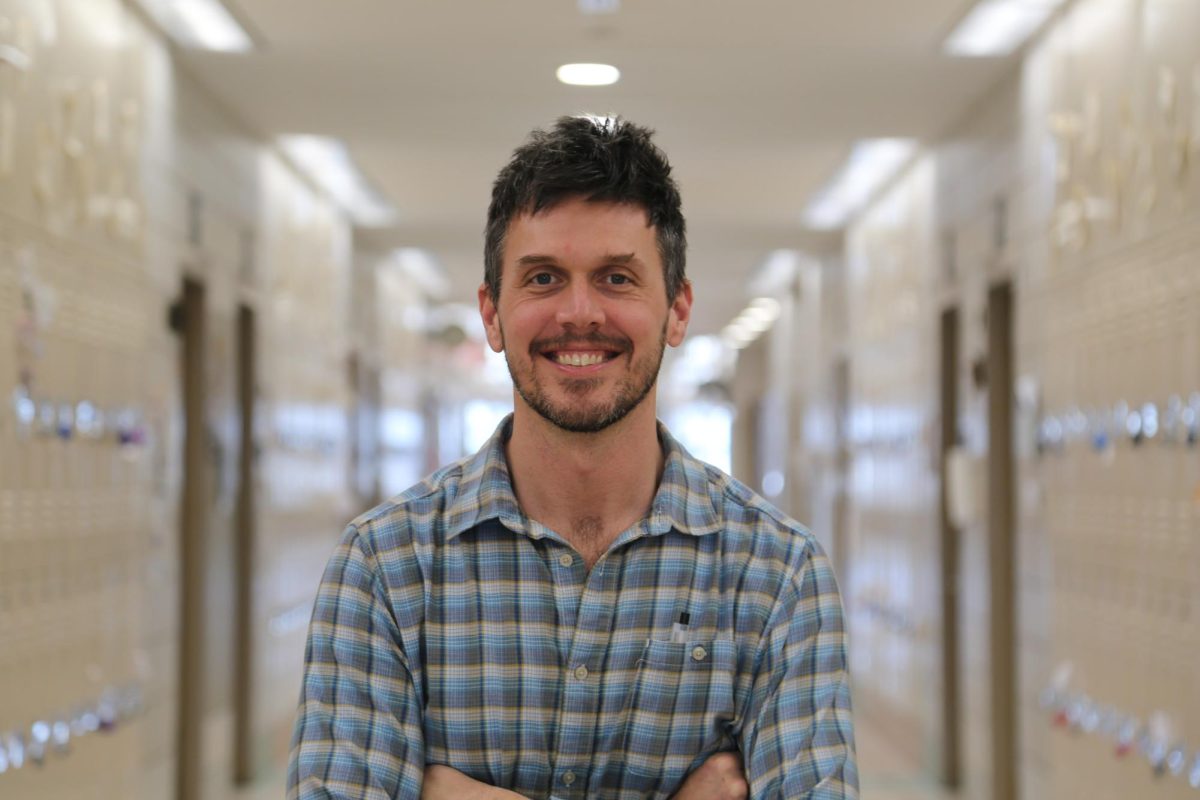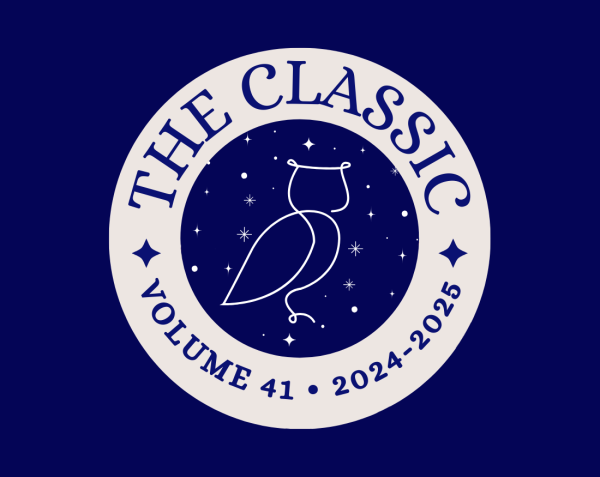
On December 5, Townsend Harris hosted its annual HIV/AIDS day, where student peer educators and an assembly teach about the importance of not only practicing safe sex but also being aware of key facts about HIV/AIDS.
Physical Education teacher Matt Lemanczyk, who oversees the peer educators, discussed the importance of AIDS education in schools. He said, “Protection and prevention are key when it comes to HIV and STIs. Empowering teens on how they can be safe and protect their reproductive health is a lifelong skill.”
In addition, Mr. Lemanczyk said, “I believe THHS does a wonderful job when it comes to teaching about HIV. Ms. Fee does an amazing job facilitating the HIV/AIDS awareness program and she is very supportive of faculty and students that choose to participate in HIV/AIDS awareness day.”
Teen educators who underwent training at Syosset High School last March went from class to class, informing students about HIV and how to avoid contracting this virus. Teen educators gave students scenarios in which they linked the spread of diseases to substances like drugs and alcohol, showing how being under the influence can inadvertently lead to not practicing safe sex or how reusing needles can also spread HIV due to the remnants of blood left on it.
Junior Alex Yauri reflected on his experience with the HIV training program as a peer educator. “It’s an amazing experience to stay informed and inform others while also creating an atmosphere where students can be comfortable. It’s amazing to see how these teachers see the need for such a program and how hard they work to educate us,” he said.
Senior Reah Joby said, “I think it’s very informative and helpful to the school. It was a little awkward to talk about it at first, but as you do more classes, you get used to it. In comparison to when I first did this as a sophomore, I got better at it, and I learned a lot of public speaking skills.”
Peer educators also planned out various activities to make the educational experience more engaging for students. These activities included partnering up to discuss the given scenarios, wearing drunk goggles to simulate and draw caution to the effect substances can have on the human body and your ability to focus, and watching lighthearted videos that deal with recognizing enthusiastic consent.
The Classic spoke to various students who experienced a visit from peer educators and took part in the pre-planned activities that were administered in classrooms throughout the day. Sophomore Mikayla Fong said, “The experience was interesting to say the least. The educators did a good job at presenting. I gained insight on the topic too.”
Students gave constructive criticism in regard to the informational aspect of the presentations. Junior Joline Tung said, “I had a lot of fun with the activity where we played as characters and had to guess who was infected. I don’t think there can be any major improvements, but adding demonstrations for condom usage could help students be more educated and safe.”
Similarly, freshman Miriam Berman added, “I think my class was very engaged, especially since the peer educators interacted with us a lot throughout the presentations. [To be] specific, I definitely think there could have been more light shed on how sexuality does not impact your chance of getting HIV.”
HIV (human immunodeficiency virus) is a virus that attacks a person’s immune system, leaving it increasingly vulnerable to minor infections or diseases. A person infected with HIV can transmit it to another person through blood, semen, or breast milk. Consistent treatment allows a person diagnosed with HIV to live a long and healthy life; not receiving this treatment allows HIV to progress to a far worse stage of the disease, known as AIDS.






























